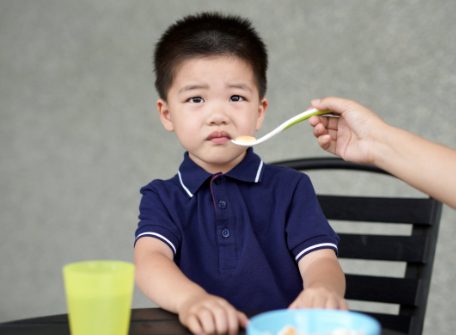When a toddler (or an adult) refuses to eat certain foods or eats the same items again and over, this is known as “picky” eating. Picky eating is most common among toddlers and preschoolers. Many parents are concerned that their finicky eater isn’t getting enough food to grow. He is, nonetheless, in the majority of situations. Here’s what you should and shouldn’t do if your child is a fussy eater.
Why Is Your Child A Picky Eater?
Picky eaters might develop for a variety of reasons. Some children are more sensitive to taste, smell, and texture than others. Other youngsters’ picky eating habits are developed as a result of their parents’ fussy eating habits. Early feeding difficulties, late introduction of lumpy foods at weaning, pressure to eat, and early choosiness are all causes of picky eating.
When parents reprimand, bribe, or praise their children’s eating habits, picky eating habits are more likely to develop. The goal of feeding a picky eater should be to introduce them to new meals while also preventing food from becoming a source of conflict.
What To Do About Picky Eating?
Some kids have food sensitivities to the taste, smell, or texture. You can do the following things:
- At each meal, provide numerous healthy food options among the foods your child enjoys.
- Introduce new foods slowly but regularly. Before a child will consume a new food, it must be served to them 10-15 times.
- Keep track of your child’s food allergies and keep them in mind when cooking. Is it difficult for your youngster to eat “mushy” foods? Then, instead of applesauce, serve apple slices or a baked potato instead of mashed potatoes. Combine a “mushy” food with a crunchy item that your toddler likes if you want her to try it.
- Any nutritional issues you may have should be discussed with your child’s health care practitioner.
Because of their disposition, some youngsters are simply less likely to explore new things.
For This Type of Child, You Can Attempt the Following:
- Place new items beside things your youngster already enjoys. Encourage him to try the new meal by touching, smelling, licking, or tasting it.
- Make customised meals for your youngster instead of becoming a short-order cook.
- Introduce new foods slowly but frequently.
- Encourage children to consume fruits, veggies, and meats by serving them with healthy dips like yoghurt, hummus, ketchup, or low-fat salad dressings.
- Involve your youngster in the food preparation (like dropping cut-up fruit into a bowl for fruit salad). Handling, smelling, and touching the food will help your youngster feel more at ease about eating it.
What Should Not Parents Do About Picky Eating?
In order to foster good eating habits, there are two major mistakes to avoid. They are as follows:
Forcing your youngster to eat is not a good idea. Forcing youngsters to eat almost always results in the child eating less. Forcing children to rely on others to tell them how much to eat and how they are feeling trains them to rely on others to tell them how much to eat and how they are feeling. This is not conducive to excellent eating habits or self-esteem.
You can either nag your youngster or make a deal with him or her. “Just two bites more!” “You will receive chocolate if you eat this.” These tactics do not work in the long run. Children who quickly learn to make bargains and ask for rewards for accomplishing other things. And they’ll quickly stop doing anything unless there’s a reward!
When Should A Picky Eater Visit A Doctor?
There’s usually no cause to be concerned about a fussy infant who prefers a limited diet as long as development and weight gain are regular and the kid is meeting milestones. However, if you’re concerned about an infant’s eating issues, consult your paediatrician.
- Your child should see a doctor if any of these symptoms appear-
- You’re worried about your child’s development (weight and height).
- Your child has difficulty swallowing: it hurts, food gets caught in his throat, or he coughs or chokes while eating.
- Continual vomiting
- You believe your child has a food allergy.
- Food rejection following a frightening choking event.
- Sensory aversions that are severe
- Pickiness combined with other medical and psychological issues
Conclusion
At Hope AMC, we provide the best therapies for picky eaters in Dubai. A consistent and predictable daily food plan is generally the backbone of fussy eater therapy. Mealtime scheduling, environmental adaptation, identification of acceptable food kinds, generating intrinsic motivation around eating, task analysis, and postural control are some of the other interventions that may be used.
Before we can set picky eating goals and begin intervention, our therapies will educate children of other abilities. This could entail learning to sit at a table or overcoming other obstacles to interaction.




